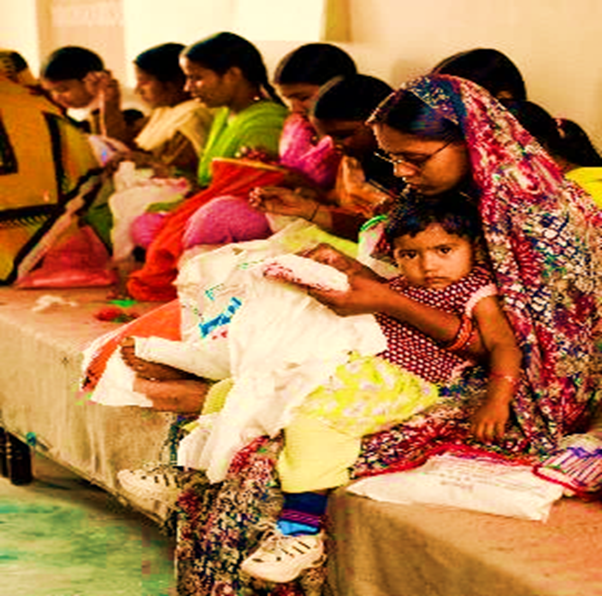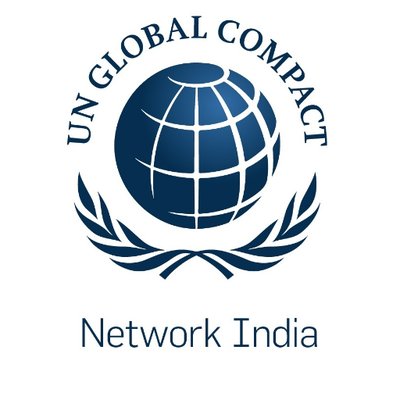Sustainable Livelihood – Mijwan Livelihood Center for Women
In the era of COVID-19 and of struggling economies around the world, women in a remote village named Mijwan in the Azamgarh district of eastern Uttar Pradesh are creating their own embroidery. Using the brand name “Made in Mijwan,” and working with designers and brands such as Manish Malhotra, Manish Tripathi, L’Oréal, ODRA and SND the rural women are able to earn an average 3500 INR per month doing Chikankari work.
The first initiative of Mijwan Welfare Society was a livelihood center for rural women, started with only one-woman – Sanyogita Prajapati, in 1993. The initial idea was to train Sanyogita in a skill she could learn in order to earn without migrating. Since Sanyogita was already skilled in Chikankari embroidery, we decided to train her further. Sanyogita was initially trained in Mijwan by a trainer (Ms. Runa Bangerjee) from Lucknow, and the training took place in her own house. Based on Sanyogita’s development, Runa Banerjee approached more women to learning embroidery and the specific work of Chikankari[1]. Soon there was a batch of 10 women and girls learning embroidery work, passing on their learning and skill to others. The creation of a vital peer based-value chain led to exponential skills gains: not only in embroidery, but latterly in operational and financial management as well[2]. Our peer-based value chain replaces the conventional top-down approach of engaging beneficiaries; it decentralised resource generation and allocation, resulting in a shift of power which can led to systemic change by moving our women and girls from the role of passive beneficiaries to that of active agents.[3]
Our peer-based value chain also increased trust between women in the village, motivating more women to join the Mijwan Livelihood Centre and the growth of our operations and female earnings in turn. Today Sanyogita leads this livelihood program in Mijwan from a spacious 2 storey embroidery (livelihood) centre with 350 women enrolled and working, earning an average of INR 3500 per month. The MWS approach was to create a cadre of rural women entrepreneurs and finally to open a bigger production unit in the village managed and led by women from Mijwan. In this way, household income would increase and migration from villages would be minimised. Having a livelihood center in the village helps create and cascade job opportunities to and boost the local economy as well as creating individual livelihoods.
Now during COVID-19 time, girls at this centre are making three-layered cloth masks and in last two months they have made 65000+ masks with ‘Made in Mijwan’ brand for distribution to communities in Uttar Pradesh, Bihar, Delhi and Rajasthan.
You can order for masks at: https://www.mijwan.org/covid-19-mask-shop/
======================
[1] The technique of creation of a chikan work is known as chikankari (चिकनकारी چکن کاری). Chikan is a delicate and artfully created hand embroidery used on a variety of textile fabric like muslin, silk, chiffon, organza, net, etc. White thread is embroidered on cool, pastel shades of light muslin and cotton garments. [2] Zhao, M. (2020). Social entrepreneurship for systemic change: the case of Southeast and South Asian countries. https://doi.org/10.1080/17516234.2020.1796325 [3] Grady, H., Diggins, K., Schneider, J., & Rose, N. P. (2017). SCALING SOLUTIONS TOWARD SHIFTING SYSTEMS. http://12982-presscdn-0-38.pagely.netdna-cdn.com/wp-content/uploads/2017/09/RockPA-ScalingSolutions-WebVersion.pdf






